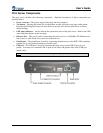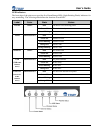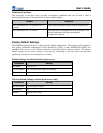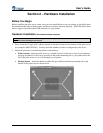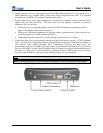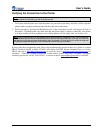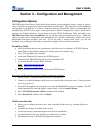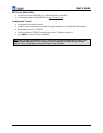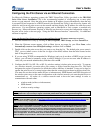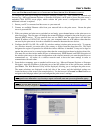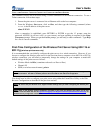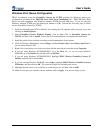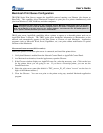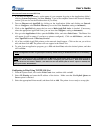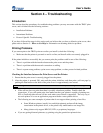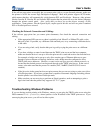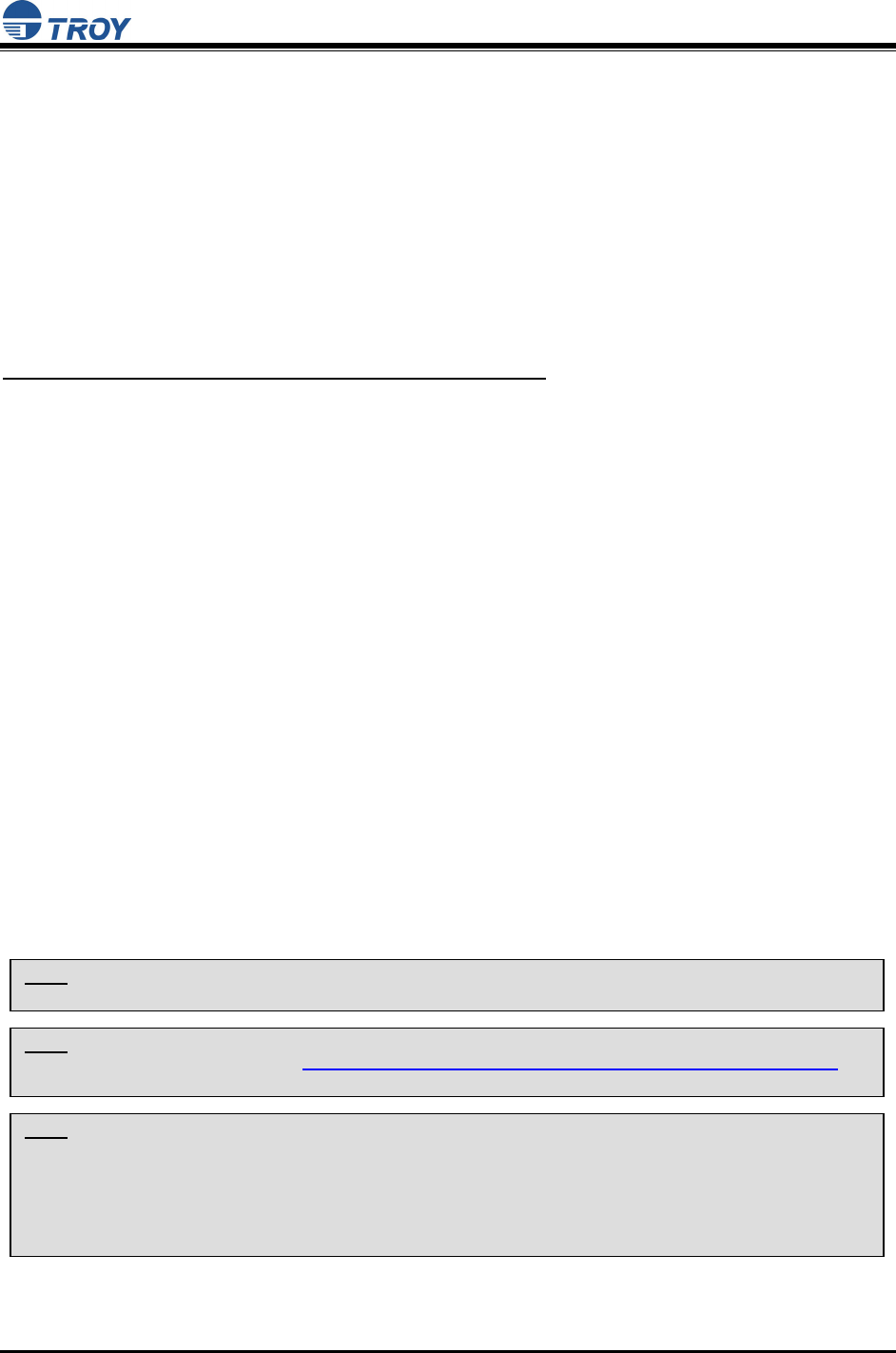
User’s Guide
Document #40181-120 Rev. A 3-3
Configuring the Print Server via an Ethernet Connection
For Microsoft Windows operating systems, the TROY ExtendView Utility (provided on the TROY200
Series Print Server Installation CD) is the recommended method of configuring one or more print
servers on your network. Once the print server obtains an IP address (occurs automatically when the unit
is powered ON and connected to a DHCP network), the ExtendView Utility’s auto-discovery feature will
search for and locate all print servers on the network and then display the IP address for each discovered
print server. For non-Windows operating systems such as Macintosh or Unix systems, a standard web
browser (e.g., Microsoft Internet Explorer or Mozilla) can be used to access the configuration settings of
the print server (refer to the next page, “Using the Web Browser Interface” instructions). No additional
software is required.
USING THE EXTENDVIEW UTILITY TO CONFIGURE THE PRINT SEVER (WINDOWS OPERATING SYSTEMS):
1. Start the ExtendView Utility by clicking on Start, Programs, TROY Group, and then ExtendView.
2. When the Welcome screen appears, click on Next, choose any name for your View Name, select
Automatically create a view with default settings, and then click on Finish.
3. Double-click on the print server that you want to use from the list. The default print server name is
TWC_xxxxxx (where xxxxxx is the last six digits of the MAC address from the label located on the
back of the print server).
4. If you are using TCP/IP (recommended for Windows) and you do not have a DHCP server (see note
below), you will need to manually assign a valid IP Address (if you are not sure what IP address is
valid, ask your network administrator), and then click on OK.
5. Configure the 802.11a, 802.11b, or 802.11g wireless settings (wireless print servers only). To operate
on a wireless network, you must select your country or region from the drop-down list. This field
designates the region of operation for which the wireless interface is intended. It may not be legal to
operate the print server in a country/region other than the country/region shown in the drop-down list.
You must also set the wireless mode (ad-hoc or infrastructure), SSID channel, and WEP encryption of
the wireless print server to the same configuration as the wireless network you want the print server to
communicate on. All nodes of a wireless network need to have the same settings in order to
communicate with each other.
wireless mode (ad-hoc or infrastructure)
SSID channel
wireless security settings
NOTE: If you are using DHCP on your network, the print server should have acquired valid IP settings at this point
and no further configuration is necessary. However, for most installations, a static IP address is preferred. If your
DHCP server does not allow the print server to keep its assigned IP address permanently, then you must manually
assign an IP address. In this case, use a static IP address outside the range reserved for DHCP (see your DHCP
server documentation for details). To assign a static IP address, right-click on the print server in the menu, and then
select Configuration. On the TCP/IP tab, under IP Address Resolution, select Set Permanent, and assign a valid
static IP address for your network. Click on OK to save the new settings.
NOTE: Refer to the wireless security supplement (provided in print with the wireless print server and is also
available from the TROY web site at http://www.troygroup.com/Support/Connectivity/Documentation/index.asp
) fo
r
extra wireless security configuration instructions.
NOTE: It may not be legal to operate the print server in a country or region other than the country or region shown in
the drop-down list. If your country or region is not listed, please check with your local government agency.



